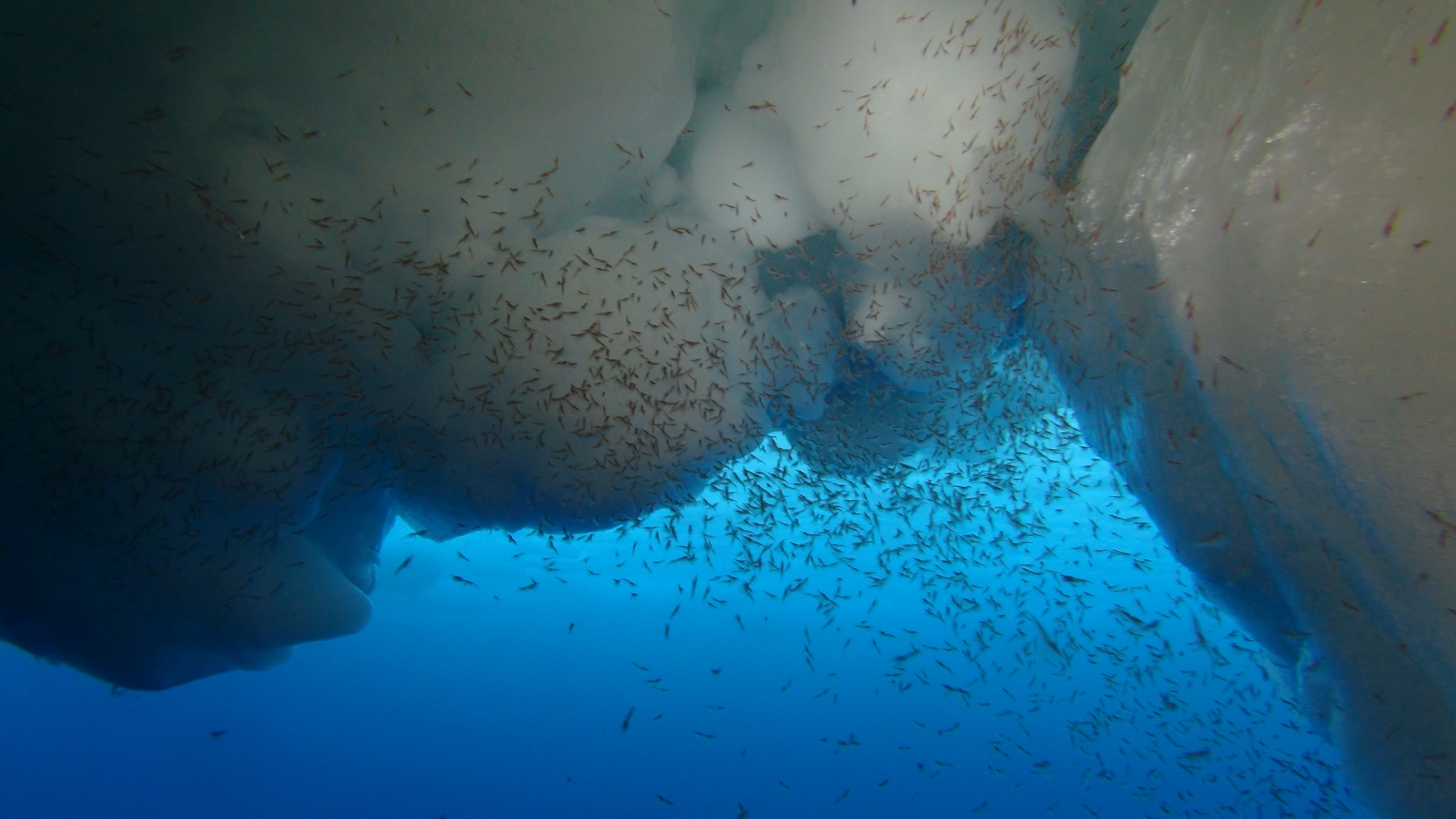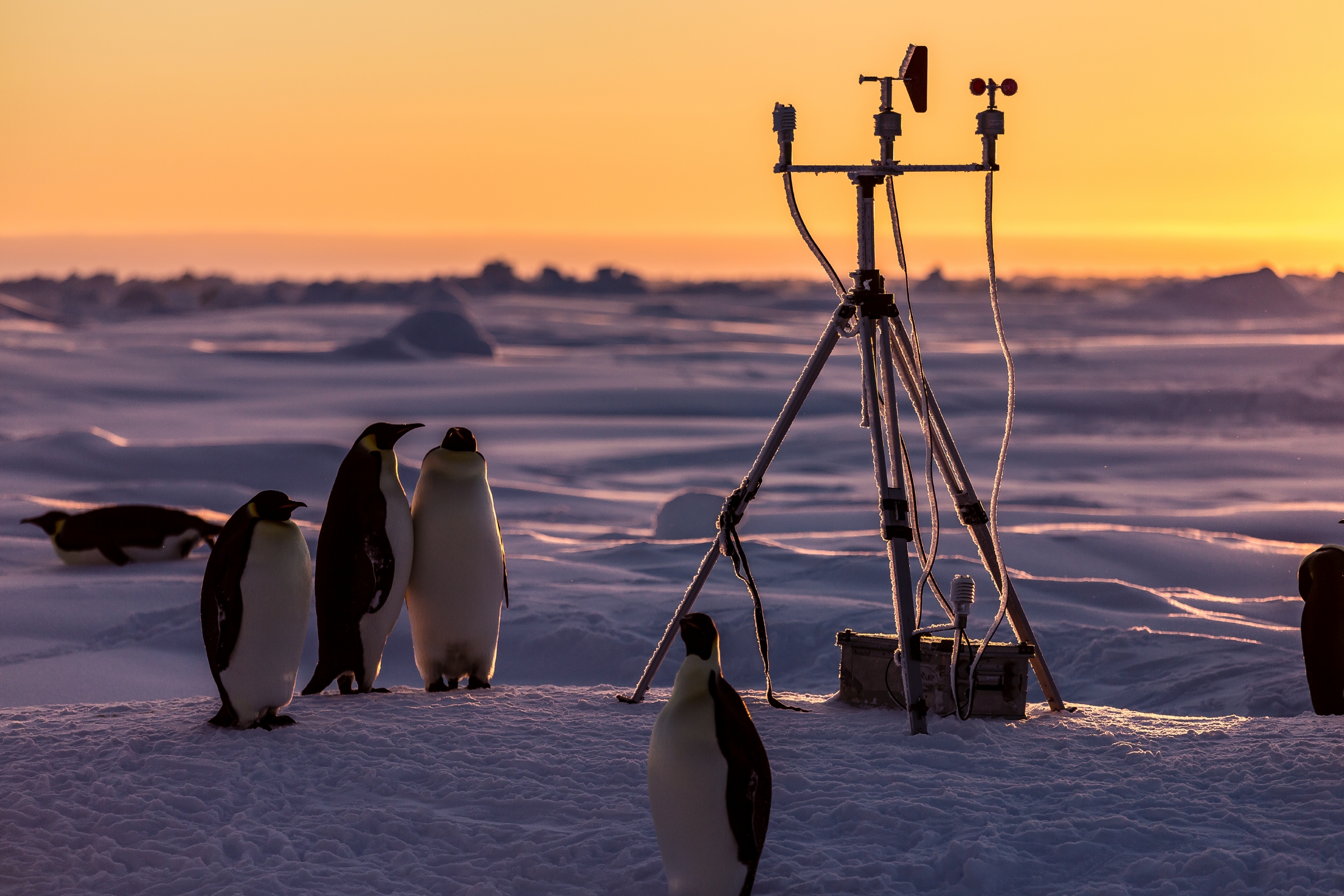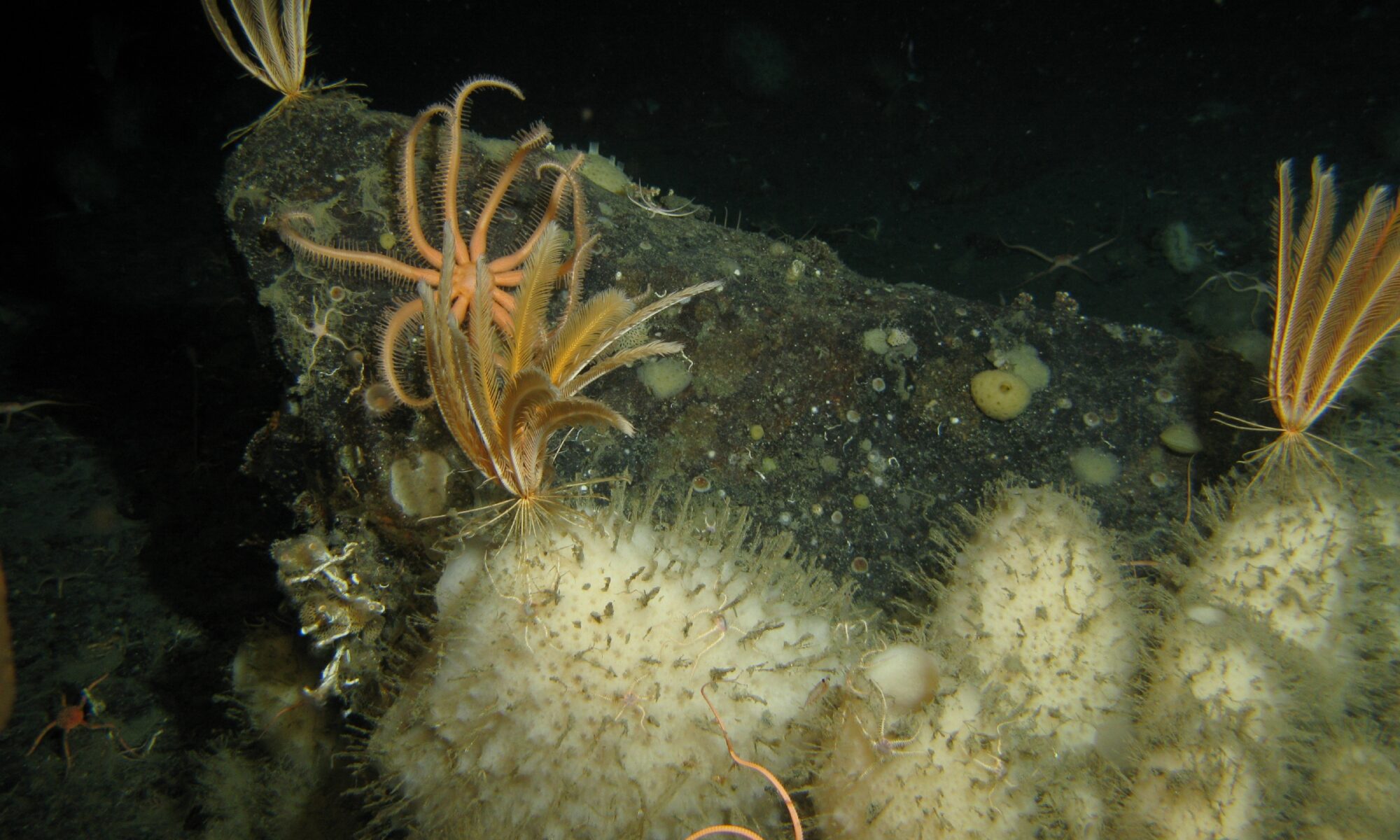The Weddell Sea is a hotspot of Antarctic life but the impact of climate change and melting of sea ice on the biodiversity and functioning of the ecosystem is poorly known. The new project ‘Weddell Sea Observatory of Biodiversity and Ecosystem Change’ will assess the biodiversity and develop a strategy for monitoring changes in a proposed Marine Protected Area.

The Weddell Sea and Climate Change
The Weddell Sea is the largest marginal sea in the Southern Ocean and a veritable hotspot of life. Here, seals and emperor penguins have their young. The swarms of krill, which graze on microalgae under ice floes, attract fish, whales and seabirds. On the seafloor, millions of icefish spawn, while underwater gardens full of glass sponges, sea anemones and sea squirts thrive, some reaching a level of biodiversity comparable to that of tropical reefs.
“The Weddell Sea constitutes a largely untouched, and therefore extremely valuable, habitat. Not only does it have a high aesthetic value, it is also characterised by unique biodiversity. This biological diversity is also the source of important ecosystem services, like the storage of carbon in the deep sea through ice algae and the remains of plankton sinking to the bottom,” explains Dr Hauke Flores, a marine biologist at the Alfred Wegener Institute (Germany) and coordinator of the Weddell Sea Observatory of Biodiversity and Ecosystem Change (WOBEC) project .
However, climate change has long-since spread to the southern polar region. Hauke Flores adds: “In the past few years, we’ve witnessed an unexpectedly rapid decline in sea ice. We don’t know how, or if, the region’s organisms can adapt to the changed environmental conditions. In order to assess this aspect, we need to first gain a better grasp of the ecosystem’s status quo and urgently need to begin systematic data collection.”

Filling the data gap
The project’s focus is on observing potential long-term changes in biodiversity in the eastern Weddell Sea. Although countries like Germany, Norway and South Africa have been conducting research in the region for decades, systematic studies on its massive ecosystem are lacking. For large parts of the Weddell Sea, long-term observations of the marine biodiversity are even completely non-existent.
To collect valuable new data, an expedition with the German icebreaker Polarstern is planned in the Weddell Sea in 2026, coordinated by the University of Rostock. In addition, the project partners will dig through their archives and make previously unreleased and hard-to-find results available in publicly accessible databases.
Dr Anton Van de Putte of the Institute of Natural Sciences and the Université Libre de Bruxelles is responsible for WOBEC’s data management. He will also be part of the 2026 expedition and will contribute to the processing and interpretation of the data. “On the basis of historical and current data alike, our goal is to create a strategy for long-term environmental monitoring in the Weddell Sea with the aid of autonomous observatories, satellite-based remote sensing, and ship-based sampling,” Anton explains.

A marine protected area?
Stakeholders from the political, business and nature conservation communities will be involved in the process, which will also take place in close collaboration with the Commission for the Conservation of Antarctic Marine Living Resources (CCAMLR). For many years now, the EU and other CCAMLR members have advocated the protection of large areas of the Weddell Sea. Unfortunately, a previously submitted proposal for a new Marine Protected Area in the Weddell Sea has failed to pass because the vote has to be unanimous and the current geopolitical situation makes CCAMLR negotiations tough.
However, the ratification of the Agreement under the United Nations Convention on the Law of the Sea on the Conservation and Sustainable Use of Marine Biological Diversity of Areas beyond National Jurisdiction (BBNJ Treaty) in 2023 is a promising development. It is hoped that this positive signal will stimulate the process of declaring a Marine Protected Area in the Weddell Sea under CCAMLR. WOBEC will provide the opportunity to create a science-based strategy for assessing biodiversity within the Marine Protected Area and its future changes.

Eleven institutes from eight countries (Europe and US) have joined forces in the Weddell Sea Observatory of Biodiversity and Ecosystem Change (WOBEC). The project is led by the Alfred Wegener Institute, Helmholtz Center for Polar and Marine Research (AWI). Over the next three years, participating researchers will determine the current state of the biotic community in the Weddell Sea, as a reference for a long-term monitoring of the ecosystem in the transforming Southern Ocean.
WOBEC is one of 33 projects in the European Union’s flagship programme BiodivMon, under the aegis of Biodiversa+, the European Biodiversity Partnership. The Kick-off Meeting for WOBEC takes place in Bremerhaven, Germany, from 11 to 14 June 2024. National partners have allocated WOBEC 1.9 million euros in financial backing.


